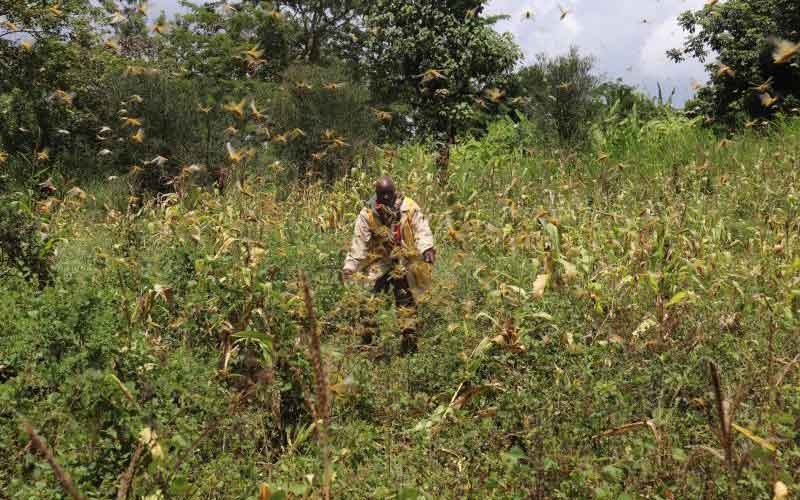×
The Standard e-Paper
Fearless, Trusted News

Mr Douglas Kinyua scares away desert locusts from his farm in Kamiu area, 3km from Embu town. Residents fear more disaster is on the way. [Joseph Muchiri, Standard]
There is fear that the desert locusts invasion in the lower part of Embu County may worsen after the eggs they laid start hatching.